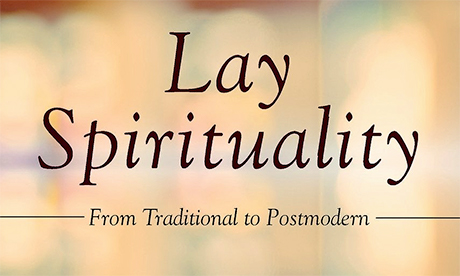2017 Lay Spirituality: From Traditional to Postmodern may well be regarded as a sequel to Pierre Hegy’s two previous volumes: Wake Up, Lazarus!: On Catholic Renewal (2011) and Wake Up, Lazarus!: Paths to Catholic Renewal (2013).
What binds these volumes together and makes them unique is the use of sociological methods to understand church practices and formulate reform agenda on the basis of sociological findings.
Hegy is a sociologist by profession and an emeritus professor of sociology at Adelphi University, and, contrary to most of his colleagues, holds that spirituality as well as religion, Christian and otherwise, can be studied from the perspective of sociology.
Of great significance is Hegy’s expert deployment of the outsider-insider sociological method in his investigation of church reforms.
Most recent theological tomes on church reform, produced usually by systematic theologians heavy with scholarly learning but light on familiarity with facts on the ground, remain at a distressingly ethereal level.
To be sure, they are for the most part solidly founded on church teachings, particularly as promulgated by Vatican II, but their theological considerations as well as their concrete proposals for church reform lack the specificities of lived experience.
This is where Hegy’s “pastoral sociology of religion” has made a significant and lasting impact on what might be called “pastoral ecclesiology.”
This innovative approach bears abundant fruit in Hegy’s study of popular religiosity and devotions, a subject of great interest to Pope Francis.
Hegy surveys the practice of popular devotions during the pre-Vatican II era, the post-Vatican II period, and our current time, in Europe, the United States and Latin America, highlighting the different ways in which these devotions form an essential part of lay spirituality as distinct from the clergy-centered ones.
He insightfully notes that popular devotions, especially as practiced in Latin American cofradías, foster lay leadership and a sense of vocation as part of Christian spirituality.
Perhaps the most thought-provoking part of the book is the last, titled “Postmodern Christianity: From Hierarchies to Networks,” in which Hegy sketches the outline of a lay spirituality for an authentic renewal of the Catholic Church.
By “postmodern Christianity,” Hegy means one in which “there is little fragmentation between the sacred and the profane, strong personal religious commitment, a great sense of community through communicative action, and a sense of mission, both individually and collectively.” Continue reading
- Buy from Amazon.com: 2017 Lay Spirituality: From Traditional to Postmodern
News category: Features.




